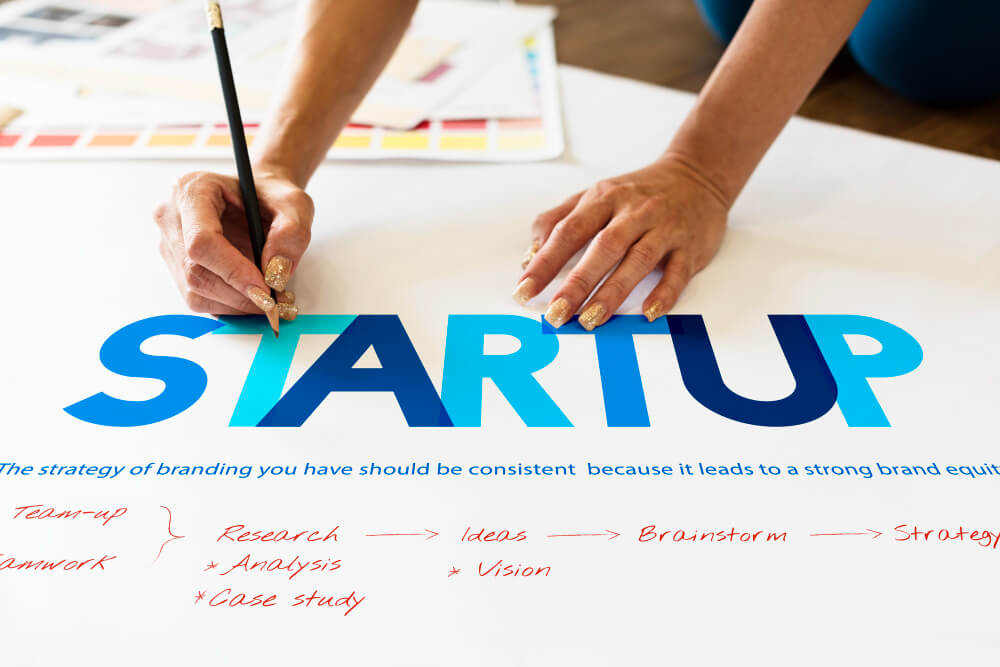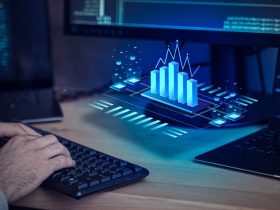Over the last decades, technology has evolved faster and entered almost every sector globally; auditing and accounting are no exception. Previously, an audit was performed manually by a team of accountants depending on some selected financial information.
But with the explosion of data in the current situation, the audit profession needs to evolve from its traditional procedures and embrace advanced technology tools like robotics, automation and artificial intelligence. It will help them uncover insights, make the audit process relevant and effective, and assist shareholders, investors and regulators take important data-driven financial decisions.
This comprehensive guide will uncover the impacts of technology in the auditing process and what skills are mandatory for new-age auditors.
Table of Content
How is technology reshaping the audit process?
Introducing artificial intelligence, data analytics and blockchain technology in the audit process will bring operational efficiency to financial inclusion and greater insights. This made auditors, professional bodies and regulators globally focus on the impact of technology in auditing.

Several vital drivers urge the need for technological change in the audit process, and the critical ones are the increasing volume of data, changing business models, business shifting towards automation, and demand for a proactive and forward-looking audit approach.
Adopting technologies like artificial intelligence, machine learning, automation, and programming has revolutionised the world of auditing. Listed below are some of the impacts of technology on audits.
● Automation is essential in delivering high-tech and advanced tools for understanding financial statements, reporting potential risk profiles and diagnosing potential frauds.
● Technology helps auditors to automatically program and code accounting entries into the system.
● It reduces the time to do mundane tasks and focuses on productive activities and critical thinking. Auditors can focus on more complex and higher-risk areas.
● Machine learning in auditing software can help auditors identify fraud accounts, high-risk profiles, and transaction misstatements.
● Artificial intelligence helps auditors to analyse, interpret and review large sets of data and contracts in the leases or agreements to look for any anomalies in the business processes and whether you follow the industry standards.
● It will improve the quality of the audit and add value to the process.
● Technology shifts the audit process from reactive and backwards-looking to proactive, predictive, and forward-looking, depending on real-time insights.
● With the ability to analyse large volumes of structured and unstructured data related to a business financial statement, auditors can now test 100% of a company’s transaction instead of selecting only a part.
● With the power of big data, auditors can now correlate disparate data to develop predictive indicators for identifying high-risk-prone areas, frauds and operational risks beforehand.
● The scope of offering audit assurance will increase beyond the financial statements.
● Blockchain technology records transactions verified by the parties involved, thus assuring the integrity of the financial records.
Read also: How to prepare for your first audit?
The Impact of Technology on Auditors
As the auditing industry becomes increasingly reliant on technology, here are a few impacts of technology on auditors and auditing:
● Auditors can use tools like machine learning, neural networks and language technology to eliminate the manual repeated process. It makes the auditing process faster, more efficient and increasingly automated.
● Auditors can use artificial intelligence to identify aberrations faster and utilise tools like data mining, machine learning, and speech recognition for effective audit outcomes.
● Technology will automate tasks like ingesting, typing, and manually analysing data.
● AI eliminates many unnecessary tasks, efficiently identifies anomalies, and understands financial statements in less time.
● Technology in the audit process increases the chance of assurance and eliminates the possibility of malpractice.
● Using technology in the audit process ensures no fraudulent transactions or illicit activities lead to money laundering, market manipulation, or bank fraud. These systems help auditors notice the red flags in the business being audited.
Auditors’ skill requirements for the tech future
Auditors must adapt to the changes in their client business models and understand data analytics, artificial intelligence and blockchain technology. Technology cannot replace the human relationship between an auditor uk and clients; however, they need to stay prepared to adopt any changes in the future.
Besides the traditional skills required for auditor, including critical thinking, analytical skills, organisation, integrity, teamwork, business acumen, curiosity, empathy and initiative, they now need to adopt a range of technical skills.
Here are a few quotients for the future auditor:
● Technical skills and Ethics Quotient (TEQ): Auditors’ ability to consistently perform towards a defined auditing standard while maintaining integrity, independence and scepticism.
● Intelligence Quotient (IQ): Auditors’ ability to acquire and use knowledge in thinking, reasoning and solving problems
● Creative Quotient (CQ): Auditors’ ability to use existing knowledge in a new situation related to exploring potential outcomes, generating creative ideas, and making new connections
● Digital Quotient (DQ): Auditors’ understanding of existing and emerging digital technologies, capabilities, practices and strategies
● Emotional Quotient (EQ): Auditors’ immunity to identify their own emotions and ways to regulate and manage them
● Vision Quotient (VQ): Auditors’ ability to anticipate future trends by considering the existing trends and facts and gathering knowledge to fill the gaps
● Experience Quotient (EQ): Auditors’ humility and skills to meet client’s expectations, desire outcomes and add value
The Auditors must be tech savvy with good project management skills, adaptability to future changes, the ability to tell their audit narrative and stay aware of technological developments. When companies are searching for an auditor near me, they not only ask about the qualification and certifications but checks your experience with tech tools and your ability to meet the future tech era in the audit industry.
Read also: How much does it cost to hire an auditor in UK?
What are the risks associated with using technology in the audit process?
There are a few risks associated with using technology in auditing and accounting processes that require our attention and need to be addressed appropriately.

● Due to the rapid adoption of technologies and automation, there’s a big chance of loss of jobs.
● The audit information is stored on cloud platforms, increasing the chance of being exploited for destructive purposes or personal agendas.
● Technology adoption can be expensive due to its high implementation and maintenance costs.
● Technology will kill human creativity, which might affect the auditor’s thought process.
Read alo: Assessment and management of risks by auditors in organisations
Conclusion
Adopting technology in the audit process will not dismiss the traditional auditing process but will redefine its structure and improve quality. Automation is indispensable in large organisations, and auditors need to rapidly learn the new technologies and their usage to work with these clients.











